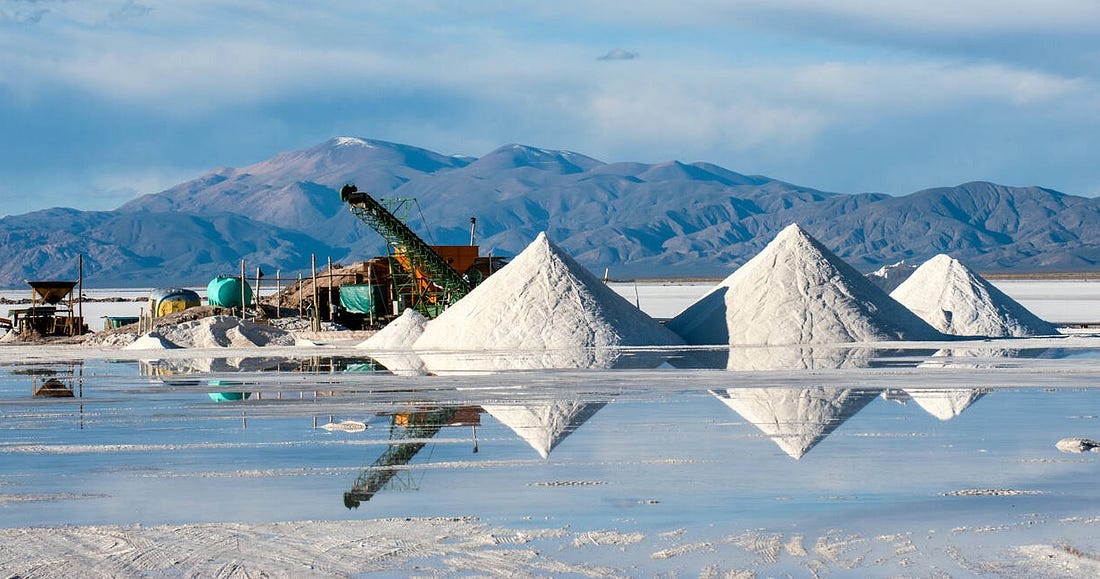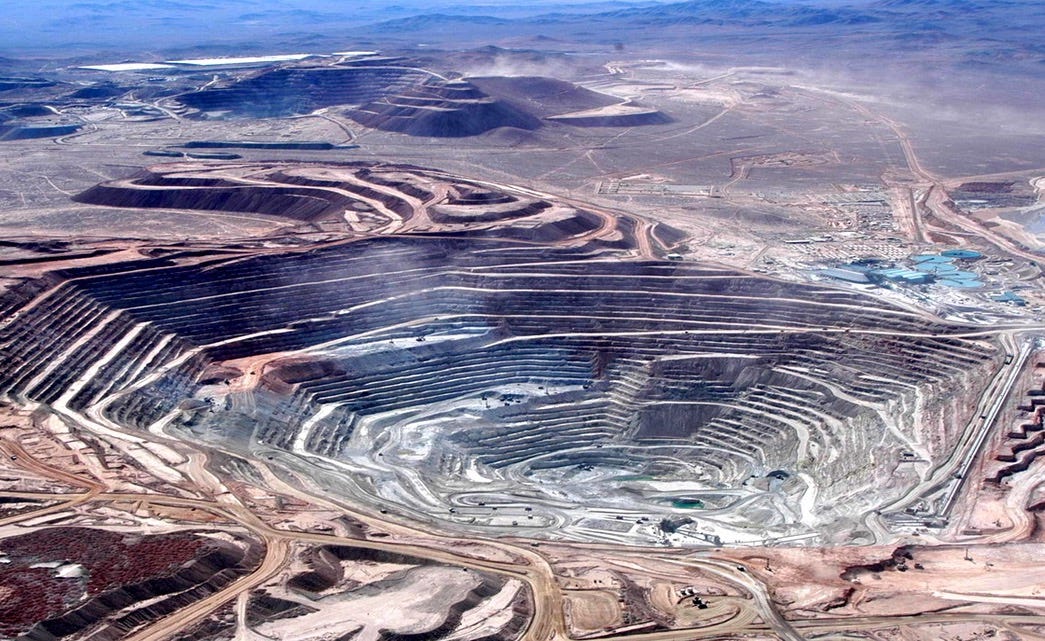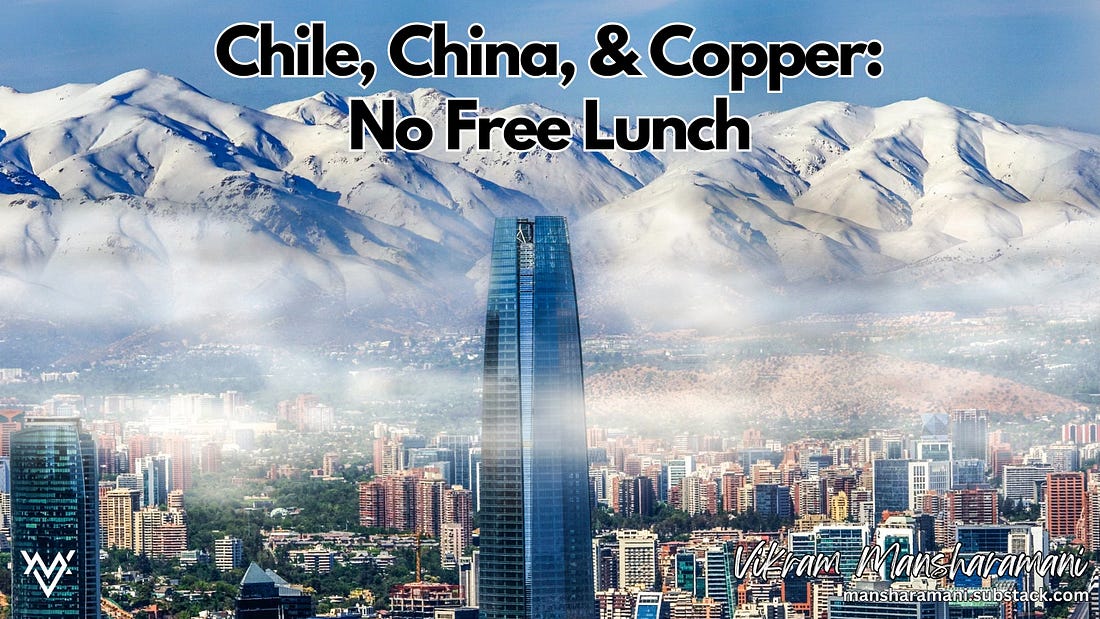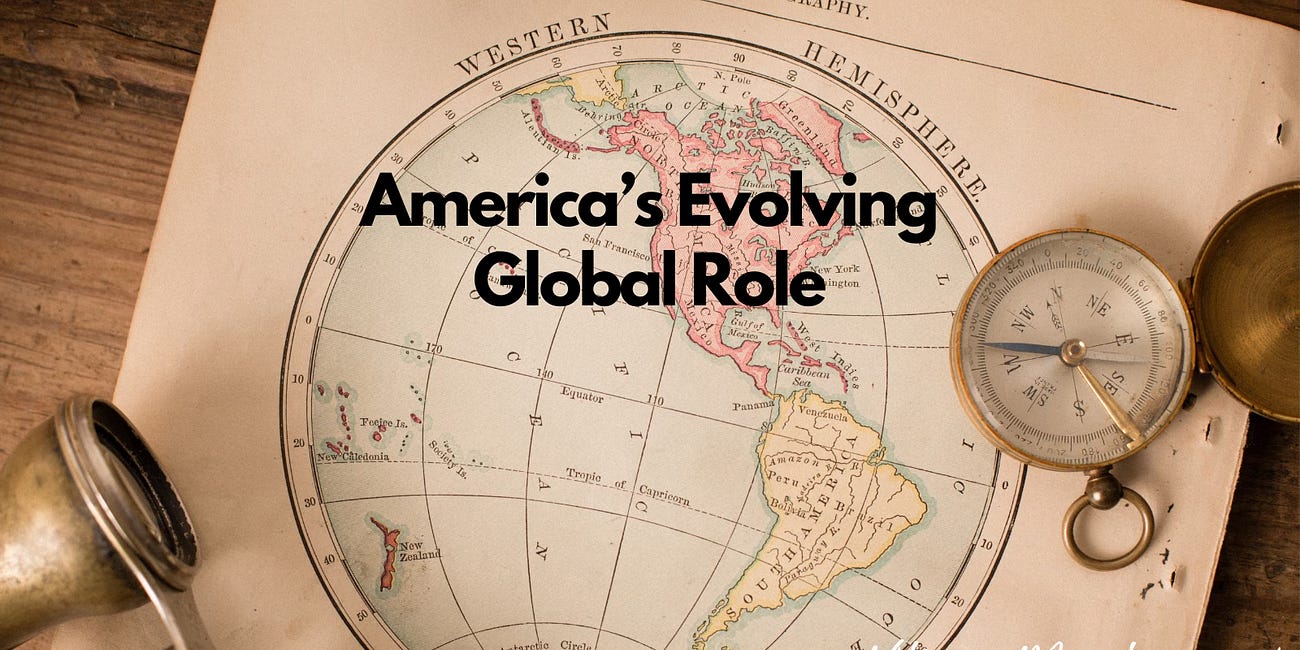|
 |
This week I did a press interview with a reporter who writes for a Chilean newspaper. As we chatted, I was struck by the extent to which Chile may very well be Ground Zero of the current war between China and the United States. As Powers Boothe’s character says in Red Dawn when asked about the origins of the movie’s fictional U.S.-Soviet war, “Two toughest kids on the block, I guess. Sooner or later, they’re gonna fight.”
Since the election of President Donald Trump last fall, the Trump Administration has been aggressively rethinking and resetting virtually all spheres of domestic and foreign policy. Aware that the clock is ticking, and trying to make up for lost time, it seems as if Trump is trying to remake the U.S. and the world in only a matter of months. It’s an ambitious and unconventional approach, one that is raising eyebrows the world over. Amidst the many cross-pressures and confusing contradictions created by this approach, one objective seems to be increasingly clear: remove Chinese influence and control from the Western Hemisphere. As I have written before, Trump is intent on restoring the Monroe Doctrine.
In the short run, the America First agenda seems to be driving a wedge between the U.S. and Latin America, a dynamic that appears to be at odds with isolating China. Some analysts are asking, “Why send South American countries into the welcoming arms of China?” Others are taking a more realpolitik approach, noting that the U.S. is more important to the global economy than China, and, in fact, without a destination for its goods, China is a paper tiger.
Reconciling these two perspectives is a matter of timing. For years, I’ve been writing and speaking about the fact that the U.S.-China war is bifurcating the world into two global economic ecosystems. One system, led by the United States and the Western World, is based on a belief in individualism, rule of law, democracy, property rights, freedom, liberty, and faith in the human ability to innovate. The other, led by China, is focused on the collective, an authoritarian approach to imposing what is best for the group.
To navigate the cross-currents of a bifurcating world, many countries are trying to “hedge” their bets by refusing to pick sides. This sentiment is best captured by a conversation I had in the Middle East in 2019, roughly a year before the pandemic. When suggesting this country would have to pick either the U.S. or China, the minister replied, “We don’t want to do that. We want to sell our oil to the Chinese and are happy to keep our wealth in dollars so we can get U.S. military protection.” I pushed back, suggesting that eventually his country would have to choose. He insisted his country wouldn’t …which is when I asked him if they would be upgrading their telecom networks anytime soon, and if so, whether he’d be using Huawei equipment. Or, if China insisted on paying in Renminbi, would they accept payment? The conversation got tense…
Not picking a side will increasingly be a dangerous strategy, and despite the short-term anxiety over tariffs, thoughtful leaders will understand they need to choose.
Trump is clearly signaling that the U.S. will not tolerate interlopers in our backyard, and his administration has been aggressively pushing China out of the Americas. This policy has already born fruit, as many Latin American countries are following suit. Mexico is cracking down on transshipment and other methods China uses to get its products into the U.S., the U.S. reasserted its role in the Panama Canal, and Guatemala and Honduras are exploring greater relations with Taiwan; in the case of Honduras, this is an abrupt reversal, after severing ties altogether just two years ago.
One country seemingly caught in the middle of the U.S.-China tension is Chile. China is the top importer of Chilean products, accounting for around 40% of Chilean exports. China is also making significant investments in Chile’s mining sector, and a Chinese company owns a large stake in Sociedad Quimica y Minera, the largest lithium producer in the world.
 |
All of this makes Chile important in the proxy war between Far East and West, but if there is one thing that makes it worthy of global attention, it’s copper. Copper is a critical component in electronics, datacenters, and electric vehicles. This makes securing the metal essential in terms of economics and national security, and Chile has roughly 23 percent of the world’s supply.
China and the U.S. are Chile’s top copper customers. China, always starved for natural resources, buys over 70 percent of Chile’s copper exports. Chile is also the top supplier of copper to the United States, and there have been warnings that we could be facing a shortage in the near future. The mineral has grabbed the attention of the Trump Administration and now risks getting caught up in the trade war frenzy.
 |
The U.S. is considering levying tariffs on copper imports from Chile, and last February Trump has ordered an investigation on national security grounds. Chile is pushing back, arguing in a letter to the Trump Administration that Chilean copper imports don’t threaten U.S. national security; in fact, just the opposite. Since the majority of Chile’s copper exports go to China, U.S. tariffs may very well end up benefitting the Chinese; the supply available to the Chinese would increase and prices would go down. The Chileans argue that this is what would undermine U.S. national security.
Chile’s argument perfectly sums up the two cross-pressures of competing U.S. aims: push China out of the Western Hemisphere and arrest the trade imbalances across various trading partners through the use of tariffs. An unintended consequence of these two goals has been that America’s neighbors in North and South America are actively considering the benefits of trade with China.
Sooner or later the two toughest kids on the block are going to fight, and Chile will have to pick a side. And Chileans have to realize that whichever side it picks, it will have to make concessions. So, it can accept Monroe 2.0, make trade concessions to the U.S., and participate in an economic and political ecosystem that respects liberty, property rights, and the rule of law, or it can run headlong into the arms of a various consumer of Chilean exports while accepting the risk that Chile may get muscled by Chinese investment, debt bombs, and domestic subversion. Either way, Chile will bear a cost to its choice and the country will have to make concessions.
As Milton Friedman once said, “There’s no such thing as a free lunch.”
VIKRAM MANSHARAMANI is an entrepreneur, consultant, scholar, neighbor, husband, father, volunteer, and professional generalist who thinks in multiple-dimensions and looks beyond the short-term. Self-taught to think around corners and connect original dots, he spends his time speaking with global leaders in business, government, academia, and journalism. He’s currently the Chairman and CEO of Goodwell Foods, a manufacturer of private label frozen pizza. LinkedIn has twice listed him as its #1 Top Voice in Money & Finance, and Worth profiled him as one of the 100 Most Powerful People in Global Finance. Vikram earned a PhD From MIT, has taught at Yale and Harvard, and is the author of three books, The Making of a Generalist: An Independent Thinker Finds Unconventional Success in an Uncertain World, Think for Yourself: Restoring Common Sense in an Age of Experts and Artificial Intelligence and Boombustology: Spotting Financial Bubbles Before They Burst. Vikram lives in Lincoln, New Hampshire with his wife and two children, where they can usually be found hiking or skiing.
You're currently a free subscriber to Navigating Uncertainty. For the full experience, upgrade your subscription.


